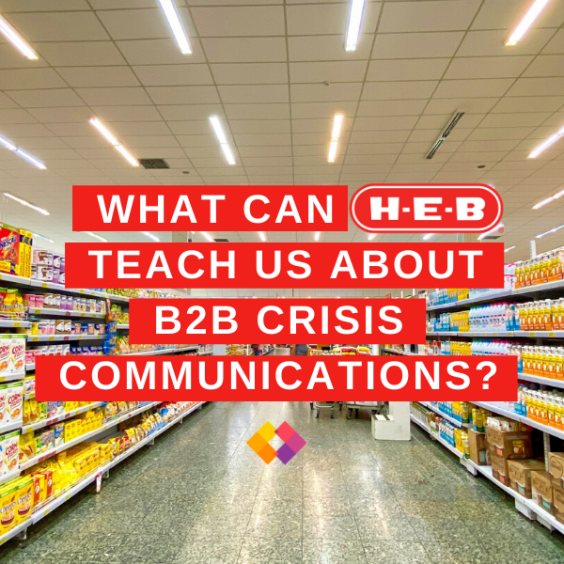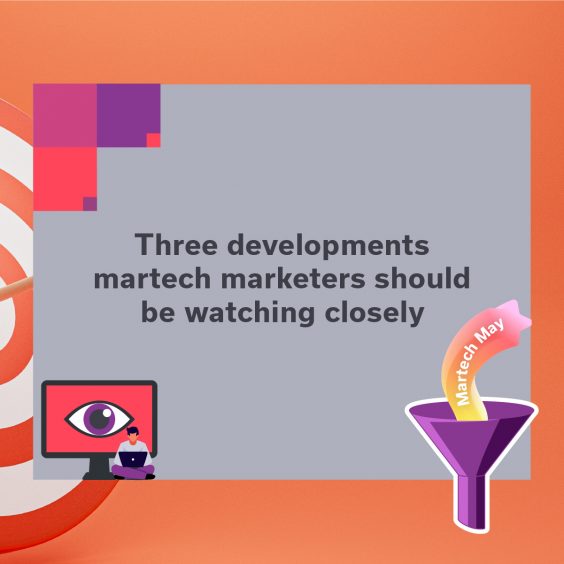B2b tech companies – especially in the martech landscape – are increasingly looking to CMOs as a key target audience. At the same time, as many companies kickstart their post-pandemic recovery, the CMO’s remit is wider than ever – thanks to changes in buyer behavior and expectations, coupled with new technology.
When it comes to tech, Forrester predicts that in 2022, marketers will turn to more complex tech stacks that employ autonomous or automated solutions as part of their digital strategy. An emerging generation of growth marketers will also drive how success is defined, pursued, and measured. Since CMOs are likely to be the ones tasked with purchasing these new solutions, they have become a key point of interest – a face to get in front of for many martech brands.
Given how the role of the CMO has recently evolved, there are a host of new factors for martech companies to consider when connecting with them. Let’s take a closer look.
Back to the future
In 2019, we wrote about what a b2b CMO’s role would look like in 2025. Naïve to the pandemic-related disturbance that would send a tidal wave across business operations worldwide, we concluded that the greatest challenge facing b2b CMOs would be retooling their skillset.
In hindsight, we don’t entirely disagree with our prediction. For b2b CMOs, rapid digital growth has meant adapting and updating their digital capabilities, especially when it comes to their ability to target their audience effectively online. Learning how to build their marketing tech stacks to support teams and meet wider business goals is something that remains at the top of CMOs’ agendas – just like we predicted in 2019.
We listed personalization, automation, and measurement as the orders of the day in 2019, and we believe these are still relevant in 2022. Looking back at a Raconteur report from 2019 on the future of b2b marketing, the trends that were predicted to affect CMOs’ plans were personalization, AI, influencer marketing, data protection, and account-based targeting. Specifically, customer understanding/insight, creativity, and cross-functional collaboration ranked as the skills that will be most important to marketers. These were closely followed by data literacy – an unsurprising addition, given that marketing is more data-driven than ever. Though this report is now obviously outdated, and the pandemic wrecking ball is still swinging, these skills and topics are relevant, even now.
With this in mind, what PR and marketing opportunities are there to engage b2b CMOs in 2022?
The new agenda
Martech companies need to shine a brighter spotlight on their real-world use cases. CMOs are heavily influenced by insights, strategies, performance, and driving business outcomes – arguably a hangover from years of not being recognized for their impact on the revenue engine.
It’s important for martech companies to connect their offering to these aspects. Remembering this while talking about how amazing your product features are can be tricky. But with thorough research on a regular basis – either from reading analyst reports or conducting bespoke surveys – martech companies can equip themselves with better knowledge on CMOs’ current challenges and media-worthy data to amplify brand awareness and speak to CMOs through the press.
With digital being the buzzword of the moment, martech companies need to position their solutions in this context when talking to CMOs. They need to illustrate how their technology can deliver in the fast-paced digital environment, as well as how it can integrate into brands’ overall digital tech stack. In 2022, the majority of CMOs will be taking a closer look at the technology they use, working out which puzzle piece they’re missing – whether that’s automation, personalization, or audience targeting. Martech companies should get ahead of the game and educate these CMOs on how to identify gaps in their marketing processes. This can be captured in thought leadership content, blogs, and whitepapers supported by research and data. The end result? The target CMO is fueled with the right insights – by the right tech provider – to empower their decision-making.
We all know that buyer behavior and the day-to-day role of the CMO are undergoing a transformation in more ways than one. Martech is one of the key catalysts behind this transformation, as well as one of the main problem solvers. So, when CMOs are added to your martech target list, don’t shy away.
Keen to learn more about how we help martech brands tell compelling stories? Get in touch at hello@rlyl.com.




